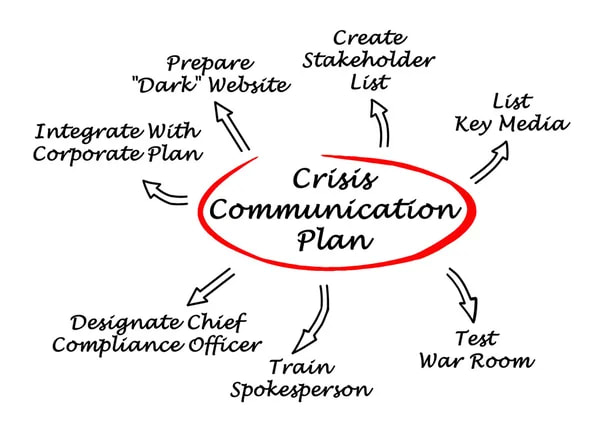|
Crisis communications is important to manage a company or a person’s reputation during a natural disaster, cyberattack, and negative media coverage. It is critical to keep on top of developments in crisis communications to minimize the damage negative press can have on a company’s bottom line or a person’s brand.
In order to navigate complicated difficulties during a crisis, a corporation must ensure that its approach is proactive and reactive. It is important to develop a game plan to deal with cyberattacks, natural disasters, or just negative media coverage. It is important issue statements to the media, to the consumer and to stakeholders to manage the messages during a crisis. Transparency is key especially during a crisis. Customers are expecting businesses to be open and honest about their strategies and working conditions. So, businesses need to be ready to convey accurate information about their plans and operations in a crisis promptly. In this blog, Allen Marketing Communications, Inc., a boutique travel and lifestyle public relations agency, explores new developments in terms of crisis communication trends. Artificial Intelligence (AI): With its capacity to monitor and analyze enormous volumes of data in real time and discover trends through natural language processing technologies, AI has the potential to improve crisis communications. This could help you identify potential problems before they develop into complete catastrophes and alert you when damage management is necessary. Using AI-driven analytics is another method to remain ahead of the curve. This kind of technology can bridge the gap between the information gathered from internet sources and what is occurring offline in real life, providing you with a distinctive insight into the thoughts, feelings, and behaviors of your target audience. In order to ensure that you are prepared for any crisis that might occur in 2023, you can utilize this data to inform your communications tactics. More Virtual Engagement: Expect to see increasing chances for distant engagement with stakeholders in a world that has mostly accepted virtual experiences, from virtual town halls to online polls. The Impact of Social Media on Reputation Management: Monitoring and timely responses to negative conversations are more important than ever as social media becomes a more significant part of business communication. There are many different ways to reach your target audience on social media sites such as Facebook, Instagram, Twitter, TikTok, and LinkedIn to deliver a client’s message during a crisis. Social Media Influencers: It's true that influencers are now more crucial than ever for disseminating reliable information and speaking with moral authority. More than ever, it is crucial to take the appropriate actions to make sure that influencers are being actively included in your crisis communication plan and strategy. It is important to provide social media influencers with approved content and statements that they can share to their followers. Companies should expand its network of supporters and get access to their networks by collaborating with influential people. Through this kind of interaction, companies can spread the word about your situation and perhaps even motivate individuals who are hearing it for the first time to take action. Video Content: Videos are great tools for swiftly and clearly delivering messages in emergency situations. You can respond more swiftly and with more insightful material that your audience will value by investing in video production. Using these many platforms will enable you to efficiently contact your target audiences during a crisis while staying on top of shifting media trends. Chatbots: Automated chatbot services let users get assistance without having to wait on hold or put up with long phone calls or emails. This may lead to shorter resolution times and an all-around improved customer experience. It is a new medium to provide updates during a crisis. Online Forums: Customers now frequently go to communities such as Reddit to acquire information and support. Build your credibility in these forums by giving insightful responses and beneficial guidance. It is best to be prepared to deal with any crisis that could negative impact a company’s bottom line or a person’s brand. Prepare a toolkit outlining the steps to undertake to communicate to the media, to your customers and to your stakeholders. A crisis communication expert such as Allen Marketing Communications, Inc. understands emerging trends in the area of reputation management and these trends can be important to stay ahead of the curve. By Joanna Allen, chief executive officer, Allen Marketing Communications, Inc.
0 Comments
Leave a Reply. |
Archives
July 2024
Categories |
HoursM-F: 8:30 am - 6 pm
|
Telephone(917) 371-3753
|
|
Quick LInks |

 RSS Feed
RSS Feed